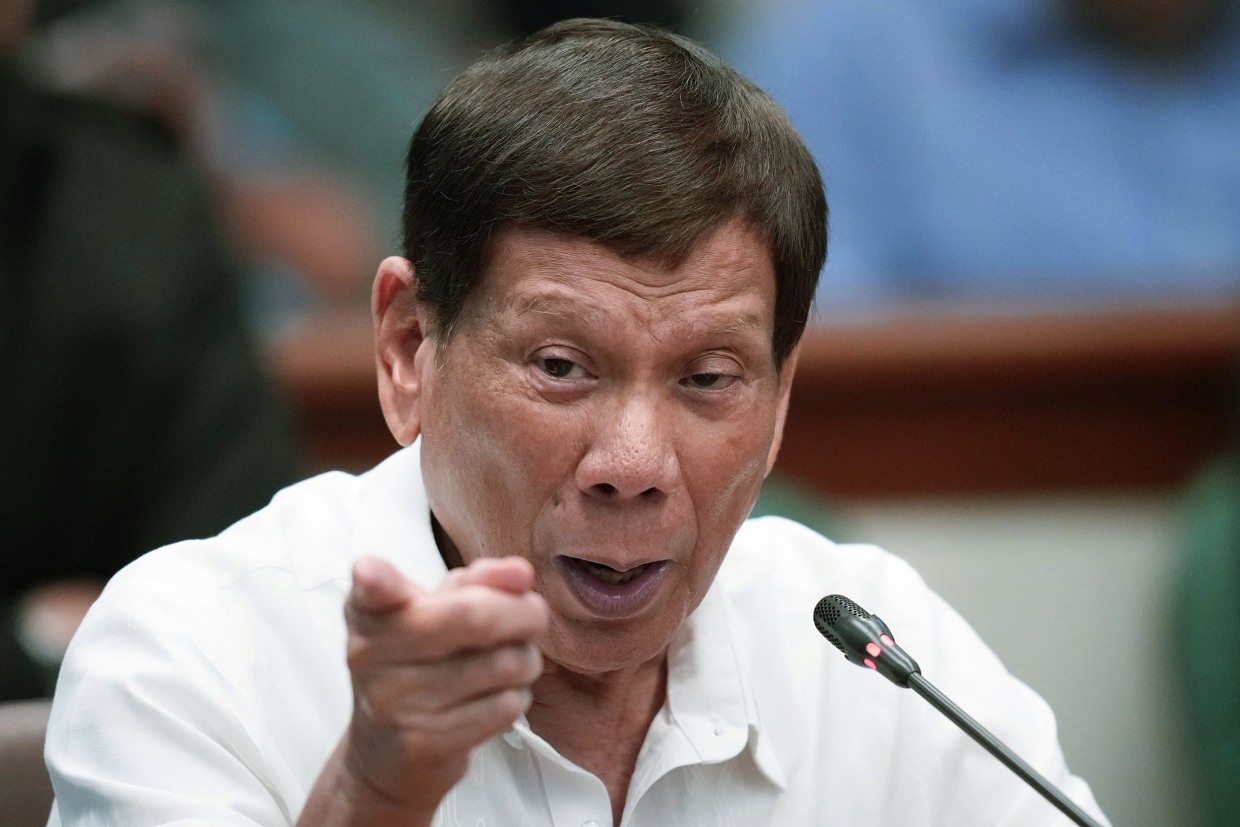
In the often-contentious landscape of Philippine public infrastructure, a new and deeply unsettling discovery is casting a long shadow over past administrations. Recent reports have brought to light what many are calling a “ghost town” – a vast housing project in Zamboanga City, initiated during the tenure of former President Rodrigo Duterte, that now stands largely abandoned, dilapidated, and virtually uninhabitable. This revelation has sparked immediate public outrage and fueled urgent calls for accountability, highlighting critical questions about project oversight, funding allocation, and the devastating impact of unfulfilled promises on ordinary citizens.
The heart of this unfolding scandal lies in a housing development in Barangay Cabaluay, Zamboanga City. Envisioned as a solution for government employees and other qualified individuals, the project was reportedly funded with a significant sum of 100 million in 2020. Under normal circumstances, such a project would have been completed well before the end of the Duterte administration. However, what investigators have found is a starkly different reality: hundreds of housing units left unfinished, without roofs, windows, or doors, and lacking essential mechanical, electrical, and plumbing installations. These structures now stand as silent, decaying monuments to a grand plan gone awry, many almost swallowed by overgrown weeds, resembling a cemetery rather than a vibrant community.
A key factor in the project’s abandonment appears to be a crucial halt in funding. According to reports, after 2020, the national government under the Duterte administration ceased allocating funds to complete this specific housing project. This abrupt cutoff left the contractors in a dire situation, reportedly forcing them to absorb some of the costs themselves in an effort to complete at least a portion of the houses. Out of more than 600 planned units, only 103 were ultimately completed, with a mere 50 occupied, leaving the vast majority of the development as a desolate “ghost town”. Those few residents who did move in have faced myriad issues, including persistent problems with water supply, further compounding the misery of living in a half-finished community.
This “ghost town” in Zamboanga is not an isolated incident but appears to be part of a broader, more systemic issue related to infrastructure development during the previous administration. Even former President Duterte himself acknowledged in 2020 that “ghost projects” were rampant within the Department of Public Works and Highways (DPWH), and he even ordered an audit of DPWH projects to identify such irregularities. Subsequent reports by the Commission on Audit (COA) in 2023 further underscored the National Housing Authority’s (NHA) failure to meet its vision of addressing the housing needs of low-income families by the end of 2019. Finance Secretary Ralph Recto has also indicated that widespread corruption, particularly in flood control programs, has hindered economic growth, suggesting that millions in public spending have not translated into tangible development.

The implications of such “ghost projects” are far-reaching. Beyond the immediate financial waste of taxpayer money, these abandoned initiatives represent shattered hopes for countless families who were promised safe and affordable housing. They erode public trust in government agencies and expose vulnerabilities within the system that allow corruption and mismanagement to thrive. The discovery also brings into sharp focus the challenges inherited by the current administration. President Bongbong Marcos, upon assuming office, has had to contend with ongoing issues from previous administrations, including problematic infrastructure projects that require significant rectifications and new allocations of funds. His administration has also taken steps to address these concerns, with DPWH Secretary Vince Dizon vowing a lifetime blacklisting for contractors involved in “ghost” or substandard projects.
The call for greater transparency has become louder than ever. Proposals for implementing technologies like blockchain, as discussed in the context of this report, aim to track government expenditures more effectively, making it nearly impossible for funds to be diverted or stolen without immediate detection. Such measures could foster a new era of accountability, where officials are held responsible not just for the initiation of projects, but for their successful completion and the delivery of promised benefits to the public.
The unfinished housing project in Zamboanga City stands as a stark and unsettling symbol. It is a reminder of the critical importance of diligent oversight, proper funding, and unwavering commitment to public welfare in infrastructure development. As the public demands answers and authorities continue their investigations into these alleged “ghost projects,” the hope remains that lessons will be learned, accountability will be enforced, and such devastating betrayals of public trust will become relics of a bygone era.
News
GULAT ANG LAHAT! Toby Tiangco, Huli sa Video na Nagtatangkang Harangin ang Suspensyon ni Kiko Barzaga – ‘Trojan Horse’ sa Kongreso Nabunyag?
Sa isang mainit na tagpo sa loob ng Batasang Pambansa na tila hinugot sa isang pelikula, isang hindi inaasahang “plot…
HINDI NA NAKAPALAG! Kiko Barzaga, Pinatayan ng Mikropono at Sinuspendi ng 60 Araw Matapos ang Matinding Harapan sa Kongreso Dahil sa ‘Fake News’
Sa isang mainit at dramatikong tagpo sa loob ng Batasang Pambansa, tuluyan nang ibinaba ang kamay na bakal laban…
GUARD! KALADKARIN NIYO PALABAS ANG MATANDANG ‘YAN! ANG BAHO NIYA, NAKAKAHIYA SA MGA PASYENTE KO!
Napakalakas ng bagyo nang gabing iyon sa lungsod. Ang hangin ay humahagupit sa mga bintana ng St. Luke’s Medical City…
LUMAYAS KA RITO! ANG BAHO MO! WALA KANG PAMBAYAD KAYA WALA KANG KARAPATANG MAGPAGAMOT DITO!
Sa gitna ng abalang lungsod ng Makati, nakatayo ang St. Raphael Medical Center, isang ospital na kilala sa makabagong kagamitan,…
The Uncomfortable Truth Exposed: Why the World’s Wealthiest Nations Are Reportedly Laughing at the Philippines and the Shocking Reason Behind Their Sudden Loss of Respect for the Pearl of the Orient!
It is a bitter pill to swallow for every patriotic Filipino, but a disturbing narrative is quietly circulating within the…
ARGUS Touches Hearts on Showtime as He Emotionally Bids Farewell to His Father
Manila, Philippines — It was a tear-filled episode of It’s Showtime as young singing sensation Argus delivered one of the most emotional…
End of content
No more pages to load












